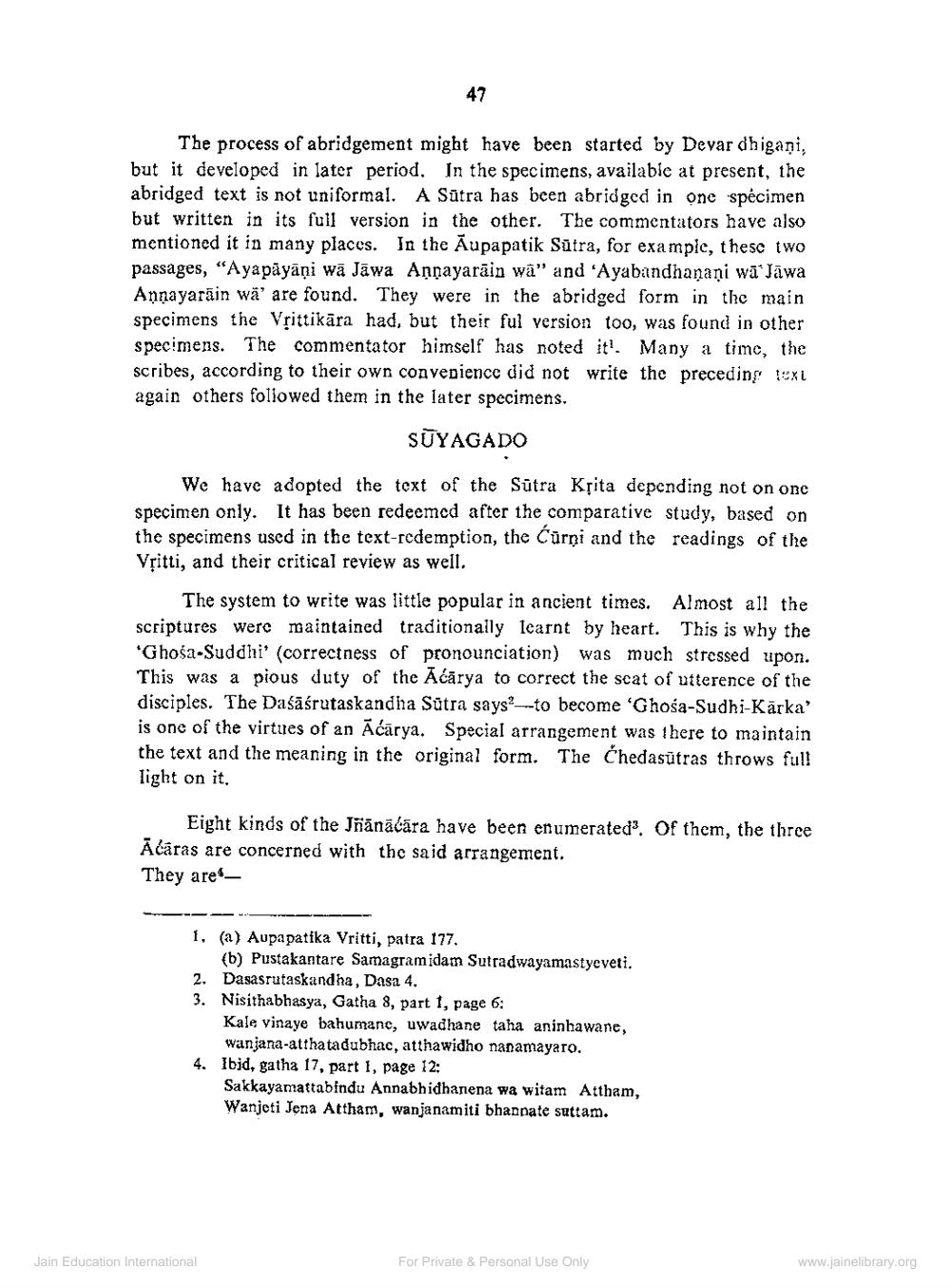________________
47
The process of abridgement might have been started by Devar dhigani, but it developed in later period. In the specimens, available at present, the abridged text is not uniformal. A Satra has been abridged in one spécimen but written in its full version in the other. The commentators have also mentioned it in many places. In the Aupapatik Satra, for example, these two passages, "Ayapāyaṇi wa Jawa Anpayarain wa" and "Ayabandhanani wa'Jawa Annayaräin wa' are found. They were in the abridged form in the main. specimens the Vrittikära had, but their ful version too, was found in other specimens. The commentator himself has noted it'. Many a time, the scribes, according to their own convenience did not write the preceding text again others followed them in the later specimens.
SUYAGADO
We have adopted the text of the Sutra Krita depending not on one specimen only. It has been redeemed after the comparative study, based on the specimens used in the text-redemption, the Carni and the readings of the Vritti, and their critical review as well.
The system to write was little popular in ancient times. Almost all the scriptures were maintained traditionally learnt by heart. This is why the 'Ghola-Suddhi' (correctness of pronounciation) was much stressed upon. This was a pious duty of the Acarya to correct the seat of utterence of the disciples. The Daśäśrutaskandha Sûtra says-to become 'Ghosa-Sudhi-Karka" is one of the virtues of an Acarya. Special arrangement was there to maintain the text and the meaning in the original form. The Chedasütras throws full light on it,
Eight kinds of the Jänäćära have been enumerated. Of them, the three Acaras are concerned with the said arrangement. They are
1. (a) Aupapatika Vritti, patra 177.
(b) Pustakantare Samagramidam Sutradwayamastyeveti.
2. Dasasrutaskandha, Dasa 4.
3. Nisithabhasya, Gatha 8, part 1, page 6:
Kale vinaye bahumane, uwadhane taha aninhawane, wanjana-atthatadubhac, atthawidho nanamayaro.
4. Ibid, gatha 17, part 1, page 12:
Sakkayamattabindu Annabhidhanena wa witam Attham, Wanjeti Jena Attham, wanjanamiti bhannate suttam.
Jain Education International
For Private & Personal Use Only
www.jainelibrary.org




